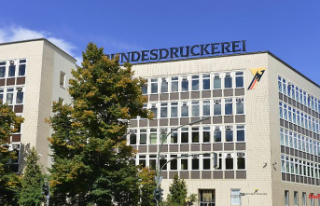Local transport is a matter for the state and the tariff jungle is correspondingly difficult. Everything is supposed to get better with the 49-euro ticket. But Transport Minister Wissing accuses the actors of making the introduction and the rules unnecessarily and intentionally complicated.
For weeks, Federal Transport Minister Volker Wissing has been showing growing impatience with the slow progress on the 49-euro ticket, but the FDP politician is now accusing the executives of deliberate delaying tactics. Wissing warned the federal states and municipalities of a blockade to the newspapers Funke Mediengruppe. "I appeal to everyone: take it seriously that the population wants the ticket as soon as possible," the FDP politician told the newspapers. "It must come in the spring."
In fact, it has long been clear that the federal and state governments each contribute 1.5 billion euros to the Germany ticket. "But I have the impression that those who don't want the ticket are still throwing a spanner in the works." It's not just about funding. Some had "developed a real passion for making the Germany ticket unnecessarily complicated," he said, according to the report. As an example, he cited the proposal to introduce penalties for terminating digital subscriptions. "But the Germany ticket can no longer be stopped. People want it and are waiting for it."
The implementation of the Germany ticket is primarily a task of the federal states and the transport companies. "As soon as all technical questions have been clarified, we can start the legislative process," said Wissing. "That could happen early next year." Most recently, Chancellor Olaf Scholz assured himself after a federal-state summit that the Germany ticket would come "quickly".
In fact, the Deutschlandticket is met with great interest from citizens. A representative survey by the management consultancy PwC showed great potential for demand last week: 41 percent of those surveyed said they would buy the ticket. 40 percent of car owners also expressed interest, as did almost a third of those surveyed who currently do not have a monthly or other season ticket for local transport.
This shows that public transport with the Deutschlandticket is likely to gain in importance as an alternative to the car, wrote the industry experts at PwC. The potential is greater in southern Germany than in the north and much greater in the metropolises than in the countryside. With the introduction of the Deutschlandticket, the number of passengers is likely to increase sharply.












